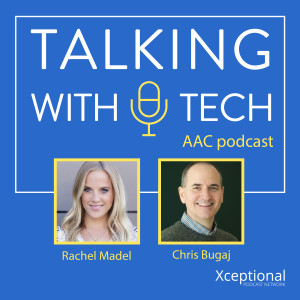
Wednesday Oct 26, 2022
AACessible: Improving AAC Assessment and Trialing
This week, we share the recording of Chris and Rachel’s recent webinar with aaccessible.org in which they answer questions related to AAC assessment, the benefits of a team-based approach to assessment, selecting motivating assessment materials, and more!
Before the interview, Chris and Rachel discuss Chris’s recent discovery that a student he worked with who was very important for him professionally had passed away. They share about some of the challenges anyone can face working with people who have complex medical needs, including people passing sooner than we expect. They also highlight the importance of teaching students about their bodies and how to say they feel sick or pain and where things hurt. It can also be a difficult balance with encouraging communication when the family is struggling just to keep the child healthy.
Key ideas this week:
🔑 There is little logic to the traditional “three trials” AAC assessment - if you choose only a low tech option, it is potentially wasting everyone’s time. If you choose to trial three robust AAC systems, how to you pick which one is first? How do you determine that the trial is long enough to make a justified decision? A team based considerations approach to assessment that bypasses the three trials can be much more effective.
🔑 When we are feature matching to determine if an AAC device is a good choice, a major consideration should be what AAC apps the team is already comfortable with. While we can always choose a different option, people are more likely to support a device they are already comfortable with.
🔑 A team-based approach to assessment is really helpful for building capacity with your team. If we have an expert model and don’t meet with the team to choose the device, then they will often not take ownership of implementation. If they are involved, often the team will be more likely to embrace the AAC tool and the implementation strategies.
🔑 When you find that a robust AAC system is not working for a student, it is most likely that you chose the correct device and the problem is related to issues related to modeling, training, and implementation.
Visit talkingwithtech.org to access previous episodes, resources, and CEU credits that you can earn for listening to TWT episodes!
Help us develop new content and keep the podcast going strong! Support our podcast at patreon.com/talkingwithtech!
No comments yet. Be the first to say something!